Which Dominoes Are Next to Fall in Europe?
If things fail from the periphery to the core, perhaps dominoes fall that way, too.
In the charts below, the black line represents the percentage of total deposits in that country that come from Smart Money. The lower the percentage, the lower the damage to Smart Money from any default. And one thing we've learned since 2008 is, core nation politicians will not hesitate to throw any peripheral nation under the bus in order to avoid any losses to Smart Money. The red line is the interest rate spread - the higher the number is above 0, the more profitable it is for Smart Money to remain. So if its profitable, and Smart Money is for some reason fleeing, you might want to pay attention! Regardless, if Smart Money is mostly gone, that means the people in charge of the Eurosystem can pull the plug on the country's banking system at any time without fear of loss to their own banking system.
First is Cyprus, to provide an example of what a deposit situation looks like when the core system political class feels comfortable torpedoing a periphery banking system.
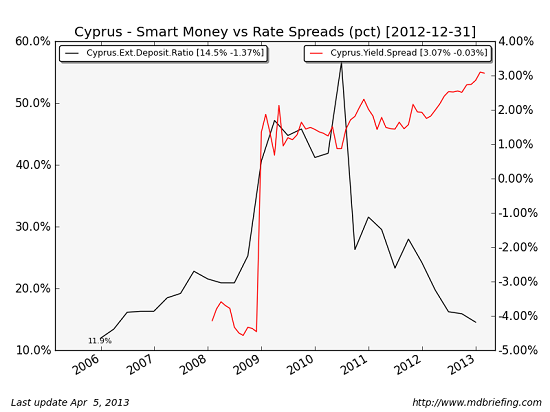
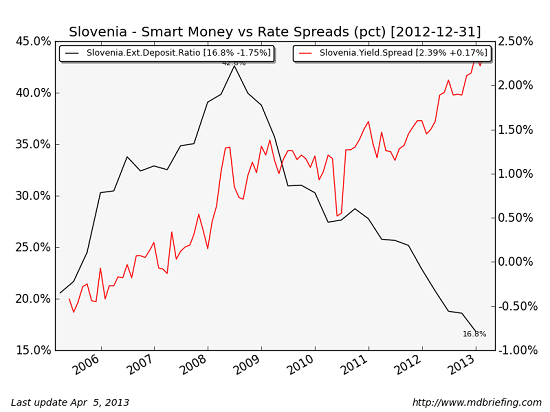
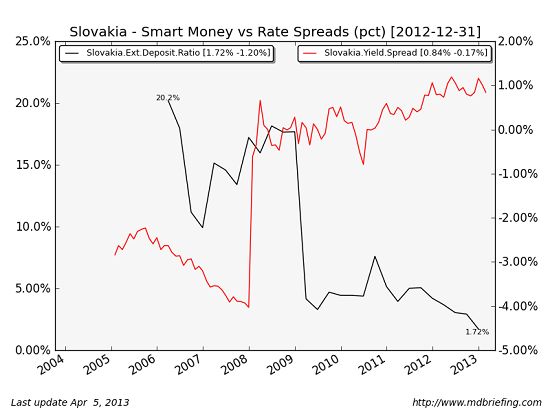
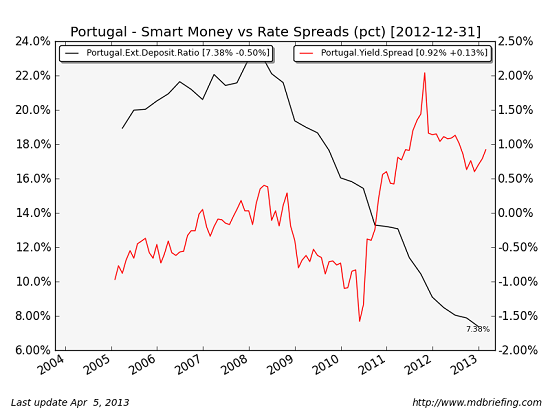
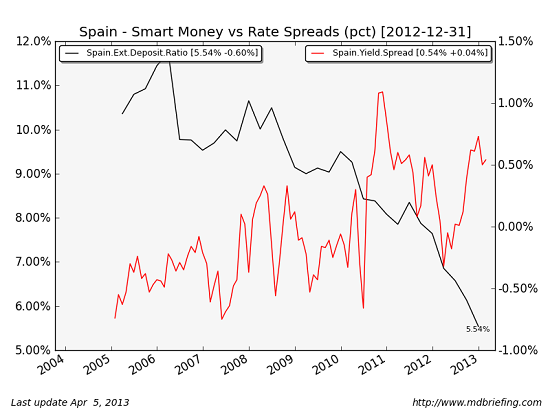
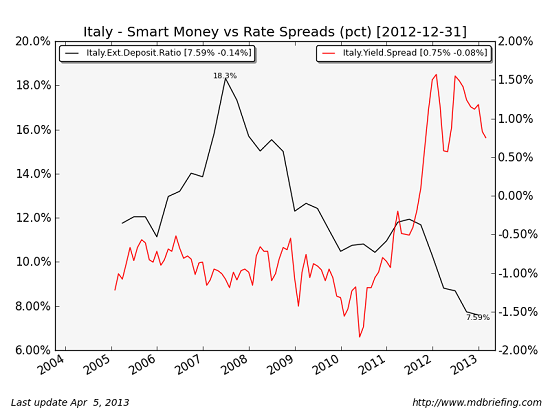
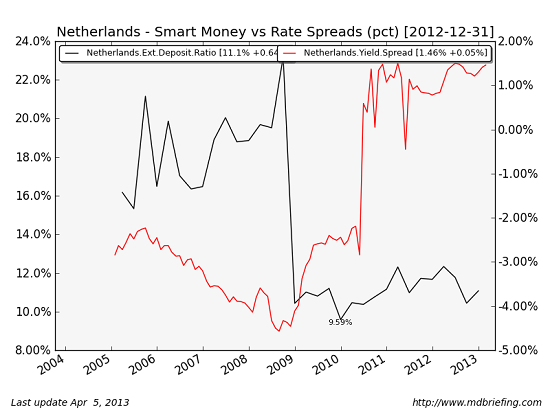
Thank you, David, for the commentary and charts. As David observed in our email exchange, "Things fail from the periphery to the core." With this in mind, we might arrange the dominoes in this order: Slovenia, Portugal, Malta, and then Spain.
Special "the end of the world as we know it" sale on seeds from our longtime supplier Everlasting Seeds:
TEOTWAWKI SALE! 20% OFF!
In light of the calamitous predictions regarding the Global Coastal Event [Clif High], Korean Nuclear tensions, and Solar/EMPs “Kill Shot” {Ed Dames}, we thought we'd offer folks the largest discount we've ever given. We're not 'fortune tellers' here, or Seers, or 'Intuitives': but if even ONE of these predictions come to pass, it'll definitely make for a 'bad hair day' {week/month/year...} for all of us...
Things are falling apart--that is obvious. But why are they falling apart? The reasons are complex and global. Our economy and society have structural problems that cannot be solved by adding debt to debt. We are becoming poorer, not just from financial over-reach, but from fundamental forces that are not easy to identify or understand. We will cover the five core reasons why things are falling apart:
 1. Debt and financialization
1. Debt and financialization2. Crony capitalism and the elimination of accountability
3. Diminishing returns
4. Centralization
5. Technological, financial and demographic changes in our economy
Complex systems weakened by diminishing returns collapse under their own weight and are replaced by systems that are simpler, faster and affordable. If we cling to the old ways, our system will disintegrate. If we want sustainable prosperity rather than collapse, we must embrace a new model that is Decentralized, Adaptive, Transparent and Accountable (DATA).
We are not powerless. Not accepting responsibility and being powerless are two sides of the same coin: once we accept responsibility, we become powerful.
Kindle edition: $9.95 print edition: $24 on Amazon.com
To receive a 20% discount on the print edition: $19.20 (retail $24), follow the link, open a Createspace account and enter discount code SJRGPLAB. (This is the only way I can offer a discount.)
| Thank you, David K. ($100), for your outrageously generous contribution to this site -- I am greatly honored by your steadfast support and readership. | Thank you, Quentin V.T. ($5/month), for your splendidly generous subscription to this site -- I am greatly honored by your support and readership. |



























